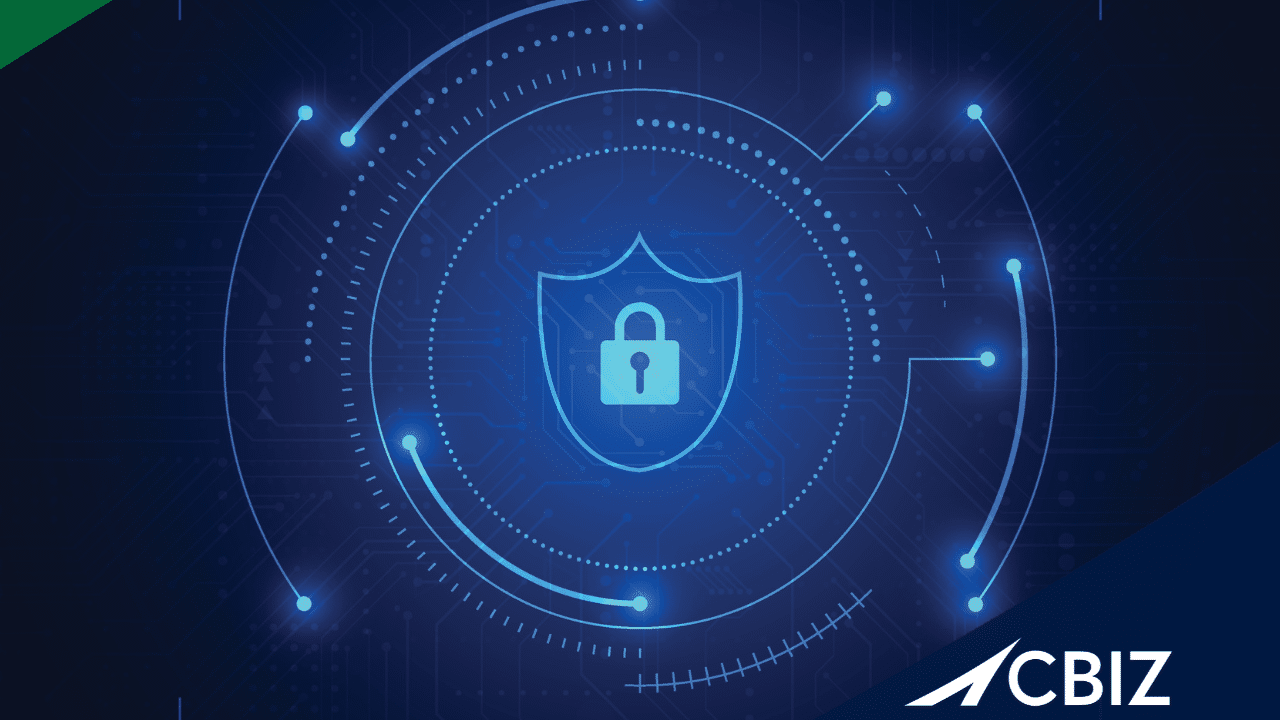
October is Cybersecurity Awareness Month, a time to highlight the importance of protecting your business from evolving cyber threats. For small- and medium-sized businesses (SMBs), this serves as a critical reminder to prioritize security. It’s an opportunity to pause, reflect, and strengthen defenses against increasingly sophisticated cyberattacks.
Cybersecurity is not just an IT issue—it’s a fundamental business risk. Unfortunately, many SMBs don’t prioritize cybersecurity, often due to limited budgets, lack of expertise, or the belief that their size makes them unlikely targets. However, cybercriminals frequently target SMBs, viewing them as vulnerable, and a single breach can have devastating effects on operations, finances, and reputation.
Without the right tools, resources, or initiatives businesses risk exposure to threats such as ransomware and phishing attacks. This is why it’s essential to take proactive measures not only during Cybersecurity Awareness Month, but year-round.
In this blog, we’ll cover key strategies and highlight best practices to strengthen your business’s security posture. By creating a culture of cybersecurity awareness, your business can build stronger defenses that extend well beyond October.
Empower Your Human Firewalls
Your employees are your first line of defense against cyberattacks. Think of them as “human firewalls” who can protect your organization, provided they are equipped with the right knowledge and tools. Building this layer of defense requires continuous investment in security awareness training.
Key Steps to Empower Your Team:
Regular Training & Simulations: Conduct consistent, interactive security awareness sessions and phishing simulations. This helps employees recognize and respond to emerging threats quickly and effectively.
Encourage Strong Password Habits: Implement policies that require unique, complex passwords for all accounts. Promote the use of password managers to securely store credentials, reducing the reliance on weak, easily remembered passwords.
Clear and Updated Security Policies: Ensure your security policies are up to date and easily accessible to all staff. Communicate any updates promptly, and ensure employees understand both the reasoning behind policies and how to follow them.
Establish Clear Reporting Protocols: Empower employees to act quickly by establishing well-defined protocols for reporting suspicious activity. Having a clear communication path can make the difference between a near miss and a serious security breach.
Foster a Culture of Continuous Learning: Security awareness shouldn’t be a one-time initiative. Offer regular refresher courses and updates on emerging threats to create a proactive, security-first culture where vigilance becomes second nature.
By empowering your employees through ongoing training and awareness, you build a culture of cybersecurity that reinforces your organization’s defenses.
Elevate Your Security Beyond the Basics
Foundational cybersecurity practices, like using antivirus software, multi-factor authentication, and regular updates, are essential. However, today’s sophisticated threat landscape requires businesses to go beyond the basics. Taking your security to the next level means adopting proactive strategies that address potential vulnerabilities before they can be exploited.
Advanced Strategies to Consider:
Penetration Testing: Schedule regular penetration tests to simulate real-world attacks and identify potential weaknesses. These tests should be performed at least annually and should focus on the most vulnerable areas of your network and applications.
Conduct Gap Assessments: An annual gap assessment will identify areas where your cybersecurity posture falls short, allowing you to address gaps and strengthen your defenses, especially in industries with regulatory compliance requirements.
Cyber Insurance Coverage: Cyber insurance can provide a safety net for financial recovery in the event of a data breach or cyber incident. It’s an essential part of a well-rounded security strategy.
Data Governance & Protection: Knowing where your data is stored, who has access to it, and how it is protected is crucial. Implement clear data governance policies to ensure your sensitive information is secure. Regular audits of your data management practices can prevent accidental data leaks or unauthorized access, reducing the risk of exposure.
Elevating your security strategy means identifying risks before they become problems, rather than reacting to threats after an incident occurs.
Stay Vigilant Against AI-Powered Email Scams
One of the most dangerous cyber threats today is AI-powered email scams. Cybercriminals are using AI to craft convincing phishing emails that are increasingly difficult to detect. Adapting your email security practices to counter these evolving threats is critical.
How to Combat AI-Driven Threats:
Always Verify Requests: Cybercriminals can make emails look like they’re coming from trusted sources. To combat this, verify payment requests or transfers via a second, trusted channel, such as a phone call or encrypted messaging service.
Establish a Secret Question: Add an extra layer of security by implementing secret questions to verify identities when sharing sensitive info. If the answer isn’t your secret response, it’s likely a scam.
Check Links Carefully: Hover over links in emails to verify their URLs before clicking. If you’re uncertain, visit the website directly rather than using the provided link.
Watch for Red Flags: Educate employees to recognize signs of phishing, such as odd language, urgent requests, or inconsistent details. These small red flags can help uncover a scam before it does damage.
Enable Email Filtering Tools: Use AI-powered email filtering systems that can detect and block phishing attempts before they reach inboxes. These tools are often better equipped to recognize patterns that are missed by traditional filters.
Keep Email Systems Up to Date: Regularly updating your email platforms and security software ensures that you are protected against the latest phishing techniques and vulnerabilities.
By staying vigilant, you can better protect your business from AI-driven scams and phishing attacks. Learn more about how to outsmart AI scams in our blog here.
Secure Your Future: Your Partner for Continuous Protection
Cyber threats don’t end after October, which is why cybersecurity must be an ongoing effort. Your employees, policies, and technology need to evolve alongside the threat landscape to ensure your business stays safe.
At CBIZ CompuData, we prioritize continuous cybersecurity education and proactive security measures to safeguard your organization. Our expert team combines advanced technology with strategic insight to secure your data and operations, providing customized cybersecurity solutions tailored to your unique business needs.
As part of the CBIZ family, CBIZ CompuData and CBIZ Pivot Point Security work together to offer a complete, integrated cybersecurity solution that covers both strategic assessments and hands-on IT support. With our combined expertise, we deliver tailored security strategies that align with your business’s unique risk profile, ensuring your organization is both secure and compliant.
To learn more about how CBIZ CompuData can help strengthen your defenses and ensure your business is protected.


